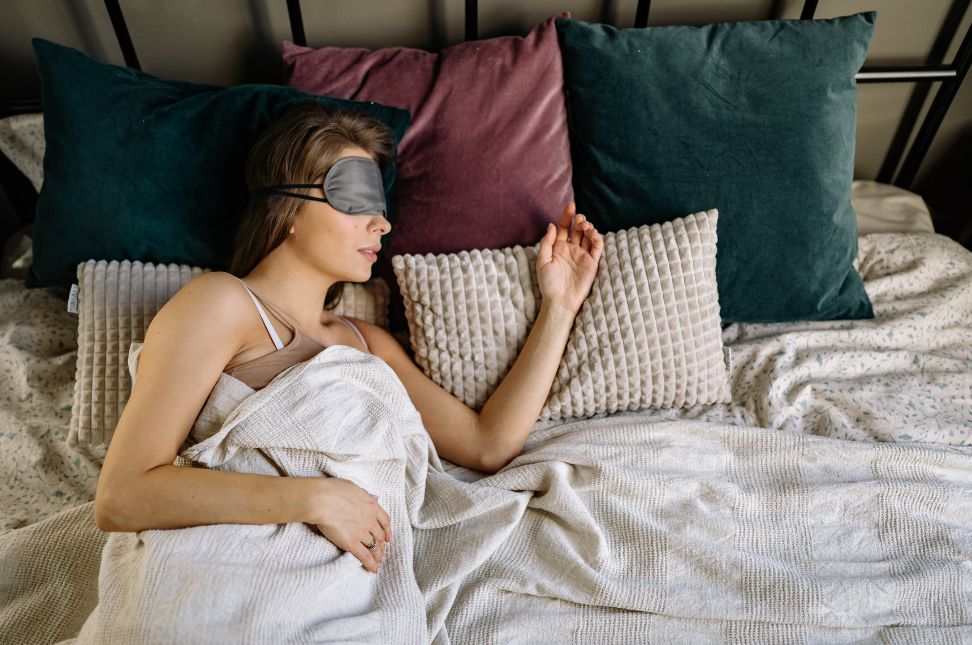Getting quality sleep is essential for overall health and well-being. Good sleep enhances mental clarity, boosts mood, and supports physical health. If you’re struggling with sleep, these Tips for Better Sleep can help you achieve the rest you need.
Establish a Consistent Sleep Schedule
One of the most effective Tips for Better Sleep is to establish a consistent sleep schedule. Go to bed and wake up at the same time every day, even on weekends. This helps regulate your body’s internal clock and can improve the quality of your sleep.
Benefits of a Regular Sleep Schedule
- Improved sleep quality: Consistency helps your body anticipate sleep and wake times.
- Easier to fall asleep: Your body will naturally feel sleepy at the designated time.
- Enhanced morning alertness: Regular wake-up times lead to better morning energy levels.
Create a Relaxing Bedtime Routine
Creating a relaxing bedtime routine is another key Tips for Better Sleep. Engage in calming activities an hour before bed to signal to your body that it’s time to wind down.
Ideas for a Bedtime Routine
- Read a book: Choose something light and enjoyable.
- Take a warm bath: This can help relax your muscles and mind.
- Practice meditation or deep breathing: Calm your mind and prepare for sleep.
Optimize Your Sleep Environment
Your sleep environment plays a crucial role in the quality of your sleep. Optimizing your bedroom can make a significant difference.
Elements of an Optimal Sleep Environment
- Comfortable mattress and pillows: Ensure your bedding supports your body properly.
- Dark, quiet room: Use blackout curtains and white noise machines if needed.
- Cool temperature: Keep your bedroom cool, ideally between 60-67°F (15-19°C).
Limit Exposure to Screens
Limiting exposure to screens before bedtime is an important Tips for Better Sleep. The blue light emitted by phones, tablets, and computers can interfere with your sleep cycle.
How to Limit Screen Exposure
- Set a screen curfew: Avoid screens at least one hour before bed.
- Use blue light filters: Many devices have settings that reduce blue light exposure.
- Engage in screen-free activities: Read, meditate, or listen to calming music instead.
Watch Your Diet
What you eat and drink can significantly impact your sleep. Being mindful of your diet is essential for better sleep.
Dietary Tips for Better Sleep
- Avoid caffeine and nicotine: Both are stimulants that can disrupt sleep.
- Limit heavy meals before bed: Large meals can cause discomfort and indigestion.
- Be cautious with alcohol: While it may make you feel sleepy, it can disrupt your sleep cycle.
Stay Active
Regular physical activity can promote better sleep. However, the timing and type of exercise matter.
Exercise Tips for Better Sleep
- Engage in moderate exercise: Activities like walking, swimming, or cycling are beneficial.
- Avoid vigorous exercise close to bedtime: Intense workouts can energize you, making it harder to sleep.
- Incorporate morning or afternoon exercise: This can help regulate your sleep-wake cycle.
Manage Stress and Anxiety
Stress and anxiety are common culprits of poor sleep. Learning to manage these effectively is crucial for better sleep.
Strategies to Manage Stress
- Practice mindfulness and meditation: These techniques can calm your mind.
- Keep a journal: Write down your thoughts and worries before bed to clear your mind.
- Establish a worry time: Set aside time during the day to address your concerns.
Limit Naps
While naps can be beneficial, they can also interfere with nighttime sleep if not managed properly.
Nap Tips for Better Sleep
- Keep naps short: Aim for 20-30 minutes to avoid grogginess.
- Nap early in the day: Avoid napping too close to bedtime.
- Use naps to recharge, not replace: Naps should complement, not replace, a good night’s sleep.
Seek Professional Help if Needed
If you’ve tried these Tips for Better Sleep and still struggle, it may be time to seek professional help. Sleep disorders like insomnia, sleep apnea, or restless leg syndrome require medical attention.
When to Seek Help
- Persistent difficulty sleeping: If sleep problems persist for more than a few weeks.
- Daytime fatigue: If lack of sleep is affecting your daily life and performance.
- Symptoms of a sleep disorder: Such as loud snoring, gasping for air, or chronic insomnia.
Conclusion
Implementing these Tips for Better Sleep can transform your nightly routine and overall health. Establishing a consistent sleep schedule, creating a relaxing bedtime routine, optimizing your sleep environment, and being mindful of your diet and exercise can all contribute to better sleep. Managing stress and limiting screen time are also crucial steps. If sleep issues persist, seeking professional help is important. Embrace these strategies to enjoy restful, rejuvenating sleep every night.




